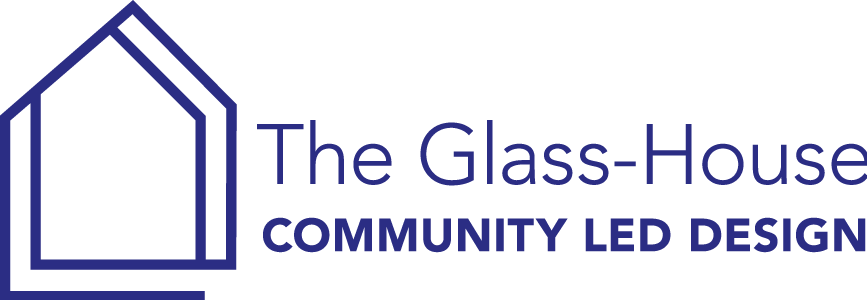Written by:
Relearning Place: Student Blogs are a series of online blogs by our WEdesign students, giving a taste of their experience of planning and facilitating the live event. We have invited student participants from each of our partner universities to write a short blog about taking part in WEdesign from their perspective. In this edition PhD student Maria Ilia Kastrouni from Bartlett School of Planning, UCL writes about her experience collaborating with The Glass-House and her thoughts on the co-production process.
Maria Ilia Kastrouni from Bartlett School of Planning, UCL
Fellow academics and practitioners who are studying relevant methodologies will certainly acknowledge that co-production with different stakeholders is considered an impeachment of the traditional top-down (and even participatory) approaches to place-making towards more sustainable and inclusive design outcomes. The craving for more democratic urban futuring has led many of us to question professional power and investigate ways to understand local knowledge, increasing social capital and the quality of the built environments or services through meaningful public involvement- and not only consultation. In theory, co-production comes with non-hierarchical settings. The collaboration happens from the beginning and throughout the process, and the topics discussed are not pre-defined but collectively decided. In co-production, all the participants contribute equally to the formulation of the end products: they are the creators and the recipients of their own endeavours.
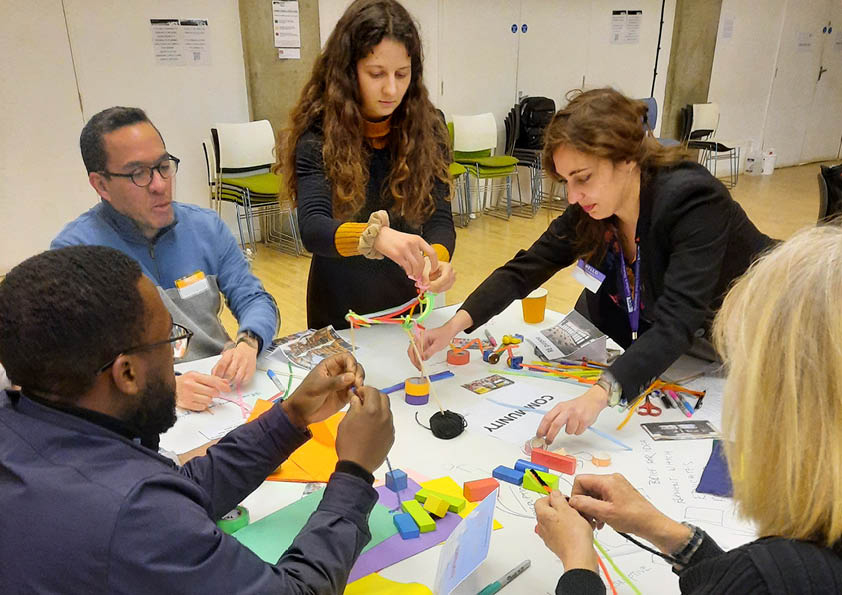
Of course, many questions arise: what are the conditions under which this ambitious conceptualisation can take place? Is co-production indeed the cornerstone for the renewal of democratic urban development?
Being a facilitator for the WEdesign co-production series, I managed to get problematised on the above and give birth to many more scientific enquiries which emerged from the creative process. Focusing on the interrelationship of communities, place, and re-purposing, a group consisting of (landscape) architects, social workers, academics and sustainability consultants aspired to co-produce a physical product based both on their previous knowledge and the concurring conversations. The multiplicity of backgrounds helped (in)form different understandings of community co-production’s opportunities and drawbacks. Some of the participants discussed their ongoing professional projects, some of which dealt with new, high-end technologies towards a new era of public participation. Others were concerned about the communities’ abstention from the developmental co-production processes. And others explored the discouraging factors behind (the lack of) public engagement: is it our era or is it our ways?
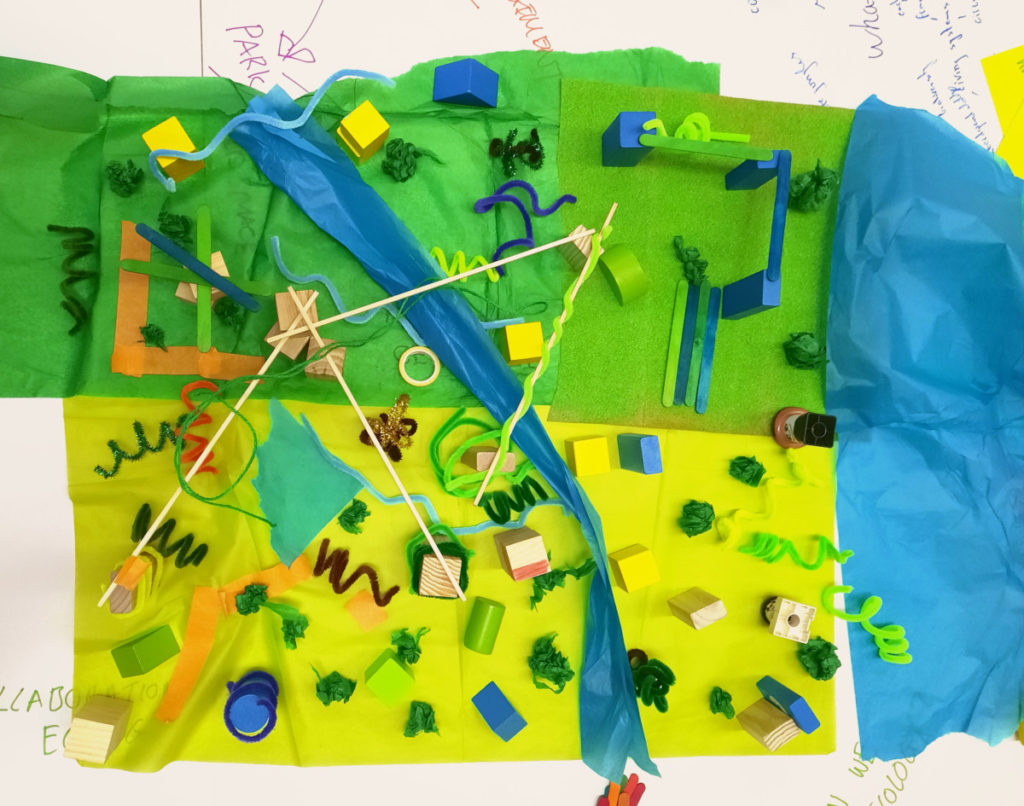
At the end of the day, all the participants agreed that the chronically persisting collaborative gap between specialists and the publics has not yet been bridged. As we discussed, communities do not want to “feel dictated”, nor do they want to be engaged in tokenistic manners; this does not tick any boxes anymore. People need more than feedback on their thoughts. They need substantial, long-term and ethical collaboration, being part of the entirety of the decision-making journey and not just some short stops in it. Architects and planners have to yearn for a thorough evaluation and understanding of what happens on the ground before any proposal takes place, since space is “peopled and gendered” (Simonsen & Vaiou, 1996, p.463). Co-production processes remain intimidating for many. The majority of the discussants saw some type of disruption necessary for the evolution of the methodology and our practice. Its character needs to become informal, inclusive, fluid and continuous, with loops rather than points of arrival. Co-production design processes cannot be confined to circular movements. They need to be informed by and meaningfully connect to wider urban processes: health, housing rights, ecology, justice and sustainability, to name a few. It is this continuity of discussions and praxis on urban making that might offer a new untapped window to the revival of democracy and trust for collaboration between the authorities and their people. Co-production needs to be re-purposed.
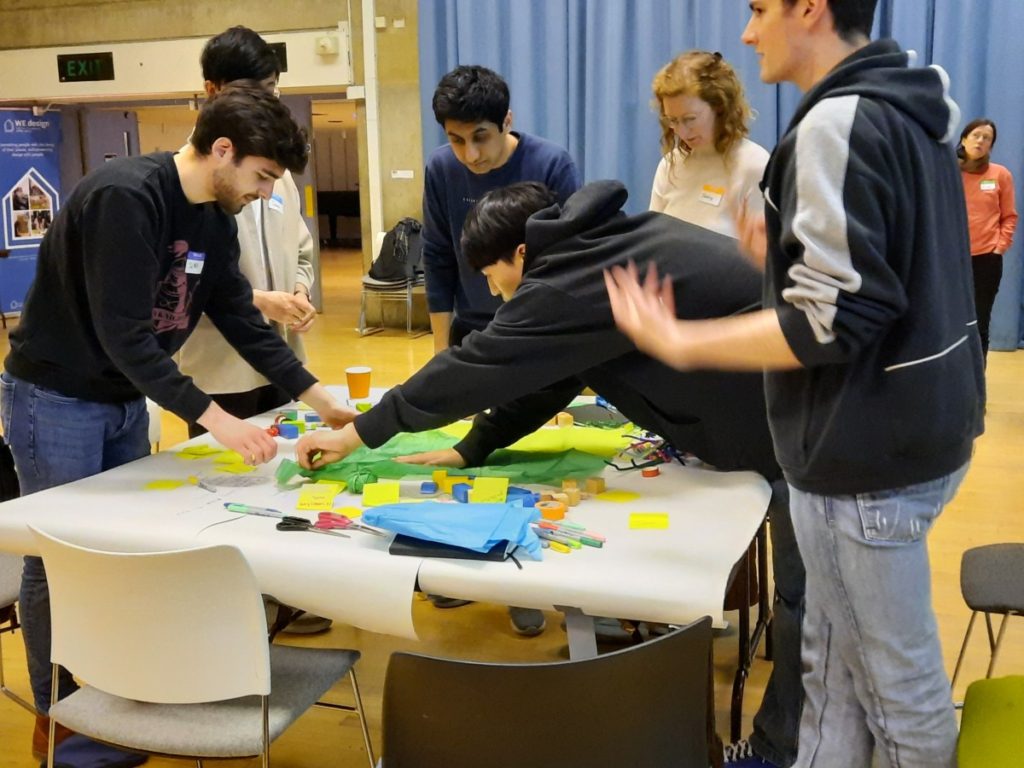
Despite the highly educated standing of the discussants, The Glass-House techniques offered us the opportunity to play. This type of knowledge production challenged the orthodox understandings of what is valued as scientific, and what is not. Play has been discussed in the bibliography as an important element of creation and engagement which could improve the existing co-production processes (e.g. Thiel, 2017). More than anything, play encourages creativity and helps participants from different backgrounds toss their (professional) identities and enjoy the process as equals. Could it be so easy? No, as Mouffe reminds us, the (ant)agonistic nature of democracy can never be resolved even under the aspiration for a “common good”, because the (conflicting) plurality of views, identities and experiences should always be present to sustain the ‘political’ (1992, p.379; 2000). However, it is critical to pursue a pluralistic knowledge production, and play-based co-production processes could (even momentarily) question the existing hierarchies and exclusions, opening new ways towards it.
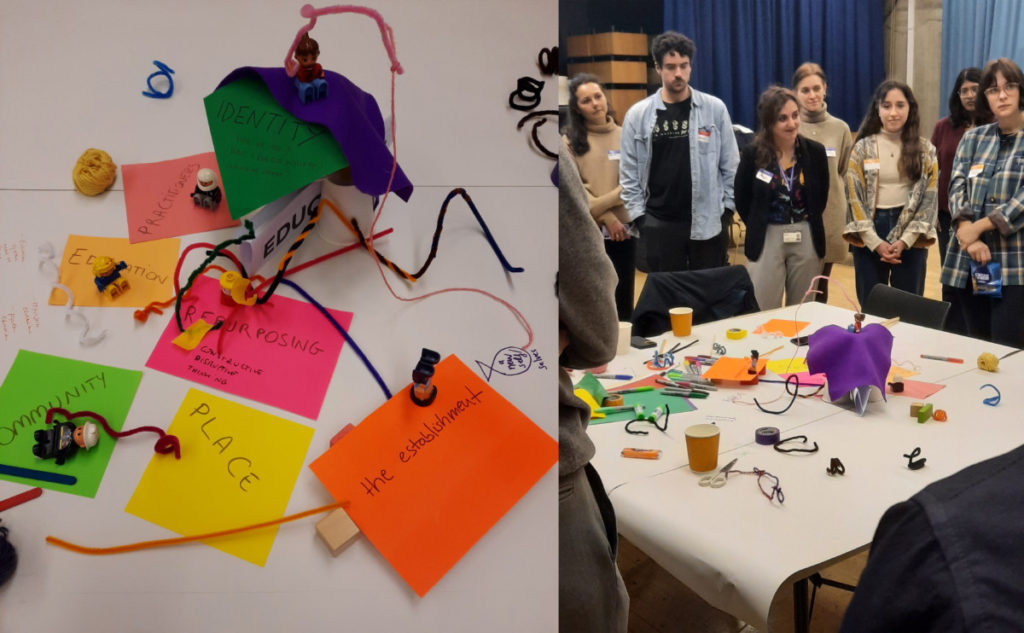
Note: I owe my sincere gratitude to Glass-House and all the participants without which these conversations would have never happened.
Sources
Mouffe, C. (1992). ‘Feminism, Citizenship, and Radical Democratic Politics’, in Butler, J. & Scott, J.W. (eds.) Feminists Theorise the Political. New York, London: Routledge, pp. 369-384.
Mouffe, C. (2000). The Democratic Paradox. London, New York: Verso,
Simonsen, K. & Vaiou, D. (1996). ‘Women’s Lives and the Making of the City: Experiences from ‘North’ and ‘South’ of Europe’, International Journal of Urban and Regional Research, 20(3), pp. 446-465.
Thiel, S. K. (2017). ‘Let’s Play Urban Planner: The Use Of Game Elements In Public Participation
Platforms’, Planext–Next Generation Planning, 4, pp.58-75.
Short Bio
Maria Ilia Kastrouni is a PhD researcher at the Bartlett School of Planning, UCL. She has previously studied at the National Technical University of Athens (MArch, 2018), the University of Cambridge (MPhil, 2020), and the University College London (MSc, 2021). She is an A.G. Leventis and Onassis scholar. Her research and practice focus on different aspects of the urban, including urban design, planning, heritage, and development, film and gender studies. She is particularly interested in the notion of socio-spatial justice, the (digital) practices of co-production, the intersection of politics, policies, and governance, and topics on gender and space.
Marilia can be contacted via her Twitter or through LinkedIn.

About the WEdesign 2022/23 Series: Relearning Place
Relearning Place is The Glass-House’s 2022/23 WEdesign series which combined free, interactive events and co-design activities in person in Glasgow, Sheffield, London and Newcastle, with a range of online events and think pieces. This year’s series finished in March 2023.
WEdesign is kindly supported by the Ove Arup Foundation.
